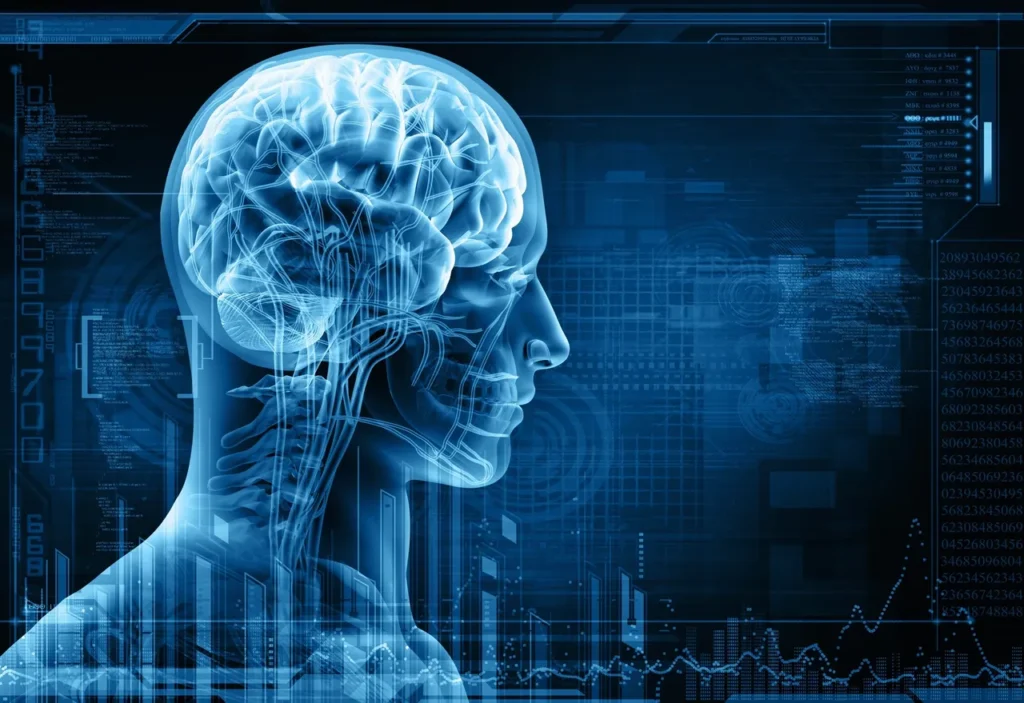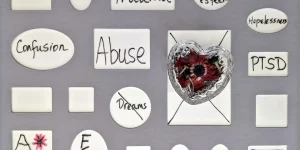How Trauma Is Stored In The Body?
Category: Trauma
When all is well, our brain is the greatest supercomputer on earth. A complex network of about 100 billion neurons, it’s not only great at processing and organizing information — it’s really, really fast. Every second, somewhere between 18 and 640 trillion electric pulses are zipping through your brain. This matrix carefully encodes and stores your memories and experiences, collectively making up the unique mosaic of you.
But what happens when a shock disrupts this system? And why is it that this shock or trauma can linger in the body and mind, affecting your health for years to come?

Topic Of Discussion
Trauma Isn’t Just In Your Head
The truth is that trauma is not just “in your head”. It leaves a real, physical imprint on your body, jarring your memory storage processes and changing your brain.
Untreated past trauma can have a big impact on your future health. The emotional and physical reactions it triggers can make you more prone to serious health conditions including heart attack, stroke, obesity, diabetes, and cancer, according to Harvard Medical School research.
Additionally, the risk of developing mental and physical health problems increases with the number of traumatic events you’ve experienced. “For example, your risk for problems is much higher if you’ve had three or more negative experiences, called adverse childhood experiences (ACEs),” says Harvard research scientist Andrea Roberts.
From outward appearances, a trauma survivor may look whole and healthy, but trauma can fester like an invisible wound, weakening the body’s defenses until it manifests in the form of an illness.
So what changes when we experience trauma? And where is it stored in the body?
What Happens When We Experience Trauma
Let’s take a look at what happens to our supercomputer when it experiences a shock.
Trauma can cause our memory processing system to malfunction: the declarative explicit memory system fails, so the traumatic memory isn’t logged and stored properly.
Instead, our brain subverts to a simpler method of recording signals and encodes traumatic memories as pictures or body sensations. This is called dissociation: memories are split into fragments. These remain embedded in the mind like shrapnel, impeding the brain’s natural recovery process. Malicious fragments can manifest as symptoms commonly associated with post-traumatic stress and increase our risk of becoming seriously physically ill.
Traumatic stress can visibly change the brain. The three parts of the brain responsible for processing stress can change when people suffer from PTSD:
- The hippocampus shrinks — this is the centre for emotion and memory
- The amygdala function increases — the centre for creativity and rumination
- The prefrontal/ anterior cingulate function decreases — the centre for more complex functions like planning and self-development
Like a virus in our encoding system, unprocessed traumatic memories can become sticking points that cause our mental and physical processes to malfunction. Early evidence of cellular memory shows that it’s not just our brain, but our body’s cells that could hold an imprint of past traumatic events.
Why Is Trauma Stored In The Body
Because our bodies and emotions can only safely handle a limited amount of stress, trauma results whenever an experience exceeds our abilities to handle and cope with its consequences. The energy of the trauma is stored in our bodies’ tissues (primarily muscles and fascia) until it can be released. This stored trauma typically leads to pain and progressively erodes a body’s health.
Feelings
Emotions are the vehicles the body relies on to find balance after a trauma. Feelings represent the accumulation of incomplete events and the body’s attempt to complete them. By strengthening our inner resources, we are capable of processing these feelings, releasing stored traumas, and increasing our ability to handle stress with greater ease.
Protection
When trauma occurs, our bodies activate a protective mechanism. A stressor that is too much for a person to handle overloads the nervous system, stopping the trauma from processing. This overload halts the body in its instinctive fight or flight response, causing the traumatic energy to be stored in the surrounding muscles, organs and connective tissue.
Whenever we store trauma in our tissue, our brain disconnects from that part of the body to block the experience, preventing the recall of the traumatic memory. Any area of our body that our brain is disconnected from won’t be able stay healthy or heal itself. The predictable effect of stored trauma is degeneration and disease.
Memory Beyond The Brain
There is ample scientific evidence proving memory storage in locations other than the brain abound. Three examples of the body containing extraordinary memory capabilities are:
- Immune system response is enhanced by memory T-cells maintaining information about previous attacks by specific foreign antigens.
2. Muscle memory improves the ability of top class sports people and musicians to perform optimally even under extreme pressure.
3. Genetic research has demonstrated that the matrix composing our body’s cells (DNA) possess a complex information storage system.
When considering the vastness of our body’s intelligence, it is no wonder that our muscles and fascia are capable of holding memories.
So What Do We Do About It
The good news is that past trauma doesn’t have to affect you for life. It’s a treatable problem and help is out there.
Therapy can help in unlocking or processing the traumatic memories, releasing them from being trapped in your system. When the traumatic memory is reintegrated in the mind, the brain can begin to heal.
Meditation and physical activity, such as yoga, also deliver real results in this release and can help the healing process.
One Trauma Centre study on PTSD treatment found that “yoga was far more effective than any medicine that people have studied up to now. That doesn’t mean that yoga cures it, but yoga makes a substantial difference in the right direction.”
Releasing trauma from the mind and body can have incredibly powerful consequences. PhD Kelly Turner extensively studied terminally ill cancer patients who beat their disease against all expectations. She found that people in spontaneous remission often cited releasing emotional stress or trauma as a key component of their healing. “You don’t have to be stuck,” says Harvard psychiatry professor Dr Kerry Ressler, “there is a good chance that you can move past this.”
Our body may ‘keep the score’ (see Bessel van der Kolk’s book of the same name), but its incredible ability to heal makes it the most interesting framework behind the human condition. As Helen Keller said, “Although the world is full of suffering, it is also full of the overcoming of it.”
Next Steps
If you or a loved one is experiencing symptoms of traumatic stress and it’s impacting your daily life, it may be time to seek help. Tri-Star Counseling, LLC offers help to individuals experiencing symptoms of Post Traumatic Stress Disorder (PTSD) and other traumatic stress symptoms.
If you are seeking help with past trauma, give Tri-Star Counseling a call today or request an appointment online.


